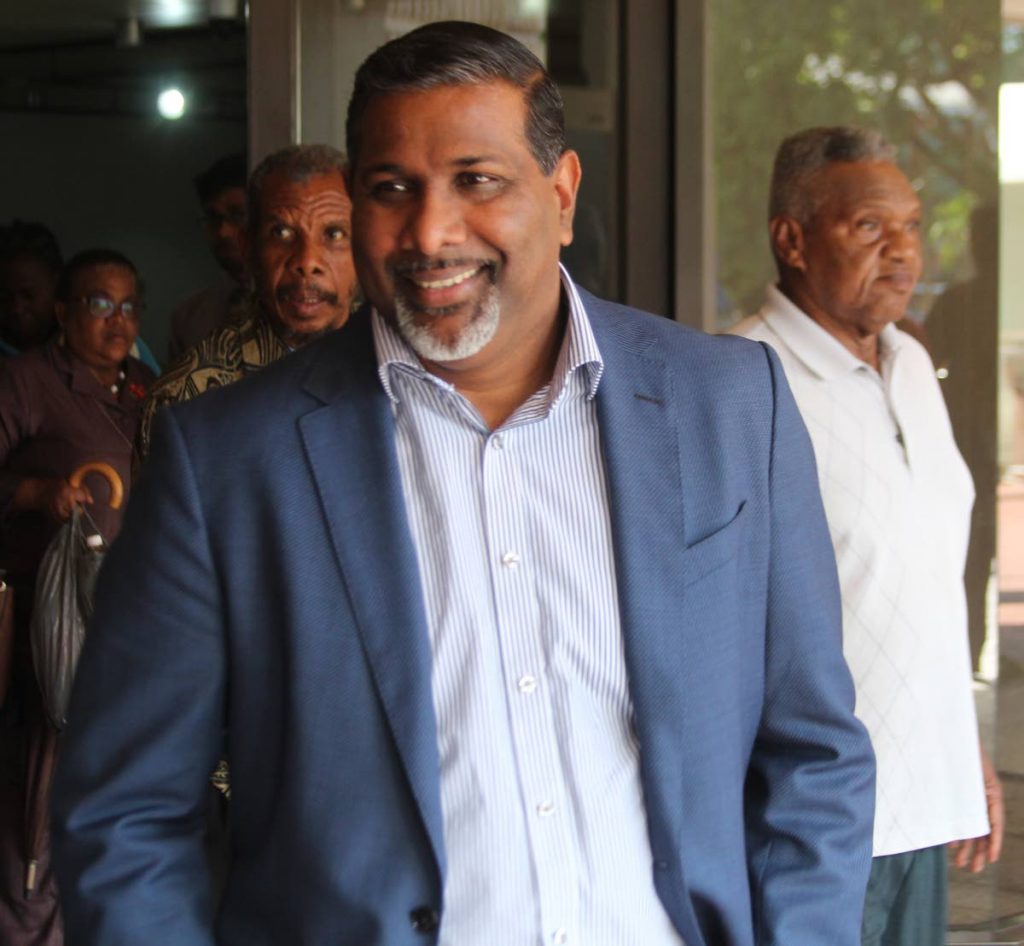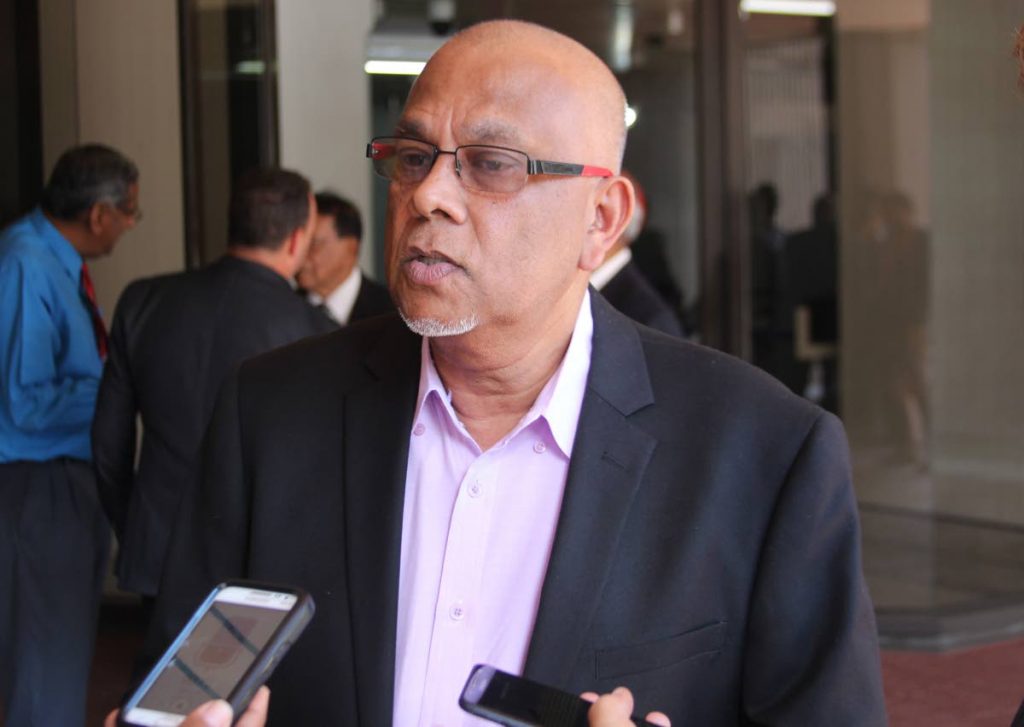National League reps’ lawsuit bowled out

JADA LOUTOO and ANDREW GIOANNETTI
THE National League members’ lawsuit over the existing electoral process of the TT Cricket Board (TTCB) was yesterday bowled out by a High Court judge.
Justice Jacqueline Wilson, in a written decision, dismissed the league’s claim, saying their dissatisfaction with the voting provisions of the TTCB’s constitution and the election system did not justify her intervention.
“The court must not allow itself to become an umpire to resolve a controversy in which TTCB and its members may be embroiled,” she said.
In her 15-page decision, the judge said it was for the TTCB to decide what rules it considered to be in the best interest of its members and the sport in general, adding there was nothing to suggest they were unfair or deviated from established principles of democracy or public policy.
The TTCB has not had an executive election since 2016, after the election which was carded to take place on October 29 of that year was postponed pending the hearing and determination of the league’s lawsuit. Yesterday’s decision now clears the way for it to take place.
The league had argued that the voting process, which allowed for outgoing members to have a vote, was “undemocratic, bias, and irrational.”
In particular, league representatives Dinanath Ramnarine, Daren Ganga and four of their cricketing colleagues have complained of a rule which gives the executive of the TTCB 12 outgoing votes.
Under the local cricketing body’s rules, nominated members elected by the board are allowed six votes, with the outgoing members of the board, some of whom may be facing re-election, being afforded six votes.
Wilson, however, said there was nothing to support the league’s argument that the 12 votes out of a majority of 49, were assured to the TTCB’s outgoing officers and constituted an unfair advantage that yielded an unjust result.
She said the TTCB was the authority responsible for advancing and promoting the welfare of cricket in TT, and was given a wide discretion by Parliament to manage its own procedures and amend its rules to address the changing needs of its membership and the sport in general.
“It is inevitable that the values, interests and ideals of some of TTCB’s members may not always be aligned with those of the executive.
“Whatever factors may ultimately serve as a catalyst for reform, the course to be adopted resides with the TTCB, as the governing body responsible for the welfare of the sport.”
Wilson disagreed with the league’s argument that Article 4 (1) of the TTCB’s constitution was illegal, unfair and undemocratic, as the rule had the elements of apparent bias in favour of the incumbent executive.
“First, a bloc of 12 votes out of a maximum of 49 does not, by any standard, give rise to a majority. If TTCB’s full membership were to participate in an election, the incumbent officers would require a minimum of 25 votes to prevail; far in excess of the stipulated bloc of 12,” she said.
Wilson also added that it could not be presumed that the incumbent would submit themselves for re-election, or that they and the nominated members would vote in favour of the incumbent executive.
“No substantive unfairness in TTCB’s election system could reasonably be alleged in circumstances where eligible voting members have the right to vote and no actual or threatened deprivation of the right has been alleged.”
She said there was nothing to suggest that the TTCB’s rules hindered the full participation of its eligible voting members or that any of them had been disenfranchised.
“Additionally, there is no inconsistency between the impugned provisions of the TTCB’s constitution and the (TTCB) Act.
“TTCB’s rule-making power conferred by the Act clearly embraces the power to make rules governing the election and re-election of its officers. The impugned provisions fall squarely within the scope of such power and accord fully with the TTCB’s statutory role.”
Speaking after the judge’s ruling, TTCB president Azim Bassarath said the executive will meet this week to discuss the holding of elections.
"We want to call the elections as soon as possible so that we can move on with the work of the board," he declared.
Of the court's decision, Bassarath said, "It is nothing that we wasn't expecting. All along we knew that you cannot go against the constitution. We have been working with the constitution. We have not done anything outside of the constitution and we have been following the constitution to the letter. So we knew that we stood on good grounds and we continue to work with the constitution. That is what we are guided by and I believe all members of the executive know that.
"Of course it is a very sad day for cricket in TT. I don't think we should have reached to this stage where we had to go to court to decide on a matter like this when we have a constitution that we are supposed to follow.
"It is of course two wasted years. I think cricket suffered greatly within these two years. You would know, sponsors did not want to come along. Sponsors would not want to be associated with something that is before the court. So definitely, two years were wasted and cricket is the one that suffered."
Ramnarine, meanwhile, said he was not derailed by the judge's decision.
"This is a democracy and this is something we have to respect," Ramnarine said.
He said there is the possibility of an appeal depending on his discussions with the other league representatives.
"I think we are on the right path, but the fact is that there is no other entity, sporting organisation that has this kind of governance structure. So we know we're on the right path and perhaps it might be good for Mr Bassarath and so on, on their own and the executive to say 'look, we ourselves believe that this process is not a fair, transparent process,' and maybe decide to let us get the mandate, not from us ourselves, but from the membership and so on.
"The fact remains is that what we have been promoting is a situation of democracy, that is one club-one vote. We have been talking about term limits for president so no one remains in office for life. We will continue to promote that.
"Again, we respect the judge's decision and we have to look at it in a different context and perhaps take an approach that – maybe over time – people will buy into it. But the problem remains that the people who have to make the decisions are those who are in authority to personally decide whether they're willing to give up that personal vote in support of letting the clubs –the real stakeholders of the cricket – actually determine who are the best people to lead the TTCB.
He said based on the current structure, "The clubs are the ones who will suffer."

On the possibility of implementing some of the recommendations of the Justice Vasheist Kokaram-led Independent Review Committee (IRC), Bassarath said, "Of course we're going to sit down (to discuss it)."
" We had promised before that in 2013 we looked at the constitution, there were changes made to the constitution, the entire board was consulted. We travelled all across TT and of course we will continue to do that. We will look back at the constitution and see what new can be implemented. The public is involved. We invite members of the public to come to these consultations. In some cases people came. In some cases people did not come but what we have to do is invite everyone again and get everyone involved.
"There was a challenge with the IRC report where we were threatened by a board member and hence the reason why the IRC report was not dealt with. We still have to cross that hurdle.
"But in the IRC report, we found that there are some things we can implement," he added.
Ramnarine, however, said he will continue to advocate for the implementation of recommendations made by the IRC.
"The board itself appointed an Independent Review Commission. They, after having investigated and interviewed people, felt that the outgoing votes were unfair."
"As soon as that report came in, it wasn't acceptable. We never even got to discuss the matter because of breaches of the process and so on by the very executive because it hadn't happened in the manner in which they had anticipated or expected. Had it come with the inclusion of outgoing votes, I'm sure it would have been signalled."
The IRC’s report recommended that the board change its approach to governance to ensure fairness and transparency – consistent with international best practices.
But the TTCB later expressed concerns that the IRC had breached their terms of reference in producing the contentious document.
The league representatives have campaigned for the implementation of the report, even before they sought to change the rule to a one club, one vote system.
Representing the league’s representatives were Ramesh Lawrence Maharaj, SC, Kiel Tacklalsingh, Vivek-Lakhan Joseph and Priya Ramsahai, while Fyard Hosein,SC, Anil Maraj and Sasha Bridgemohansingh appeared for the TTCB executive.


Comments
"National League reps’ lawsuit bowled out"